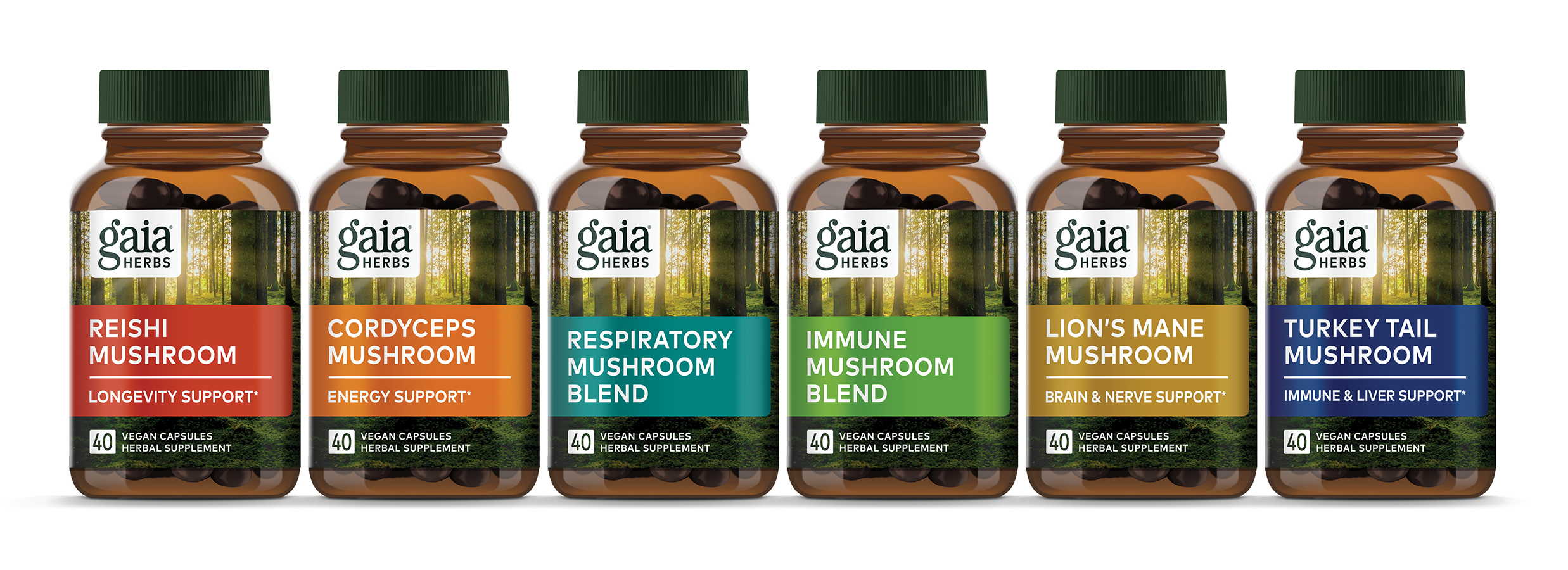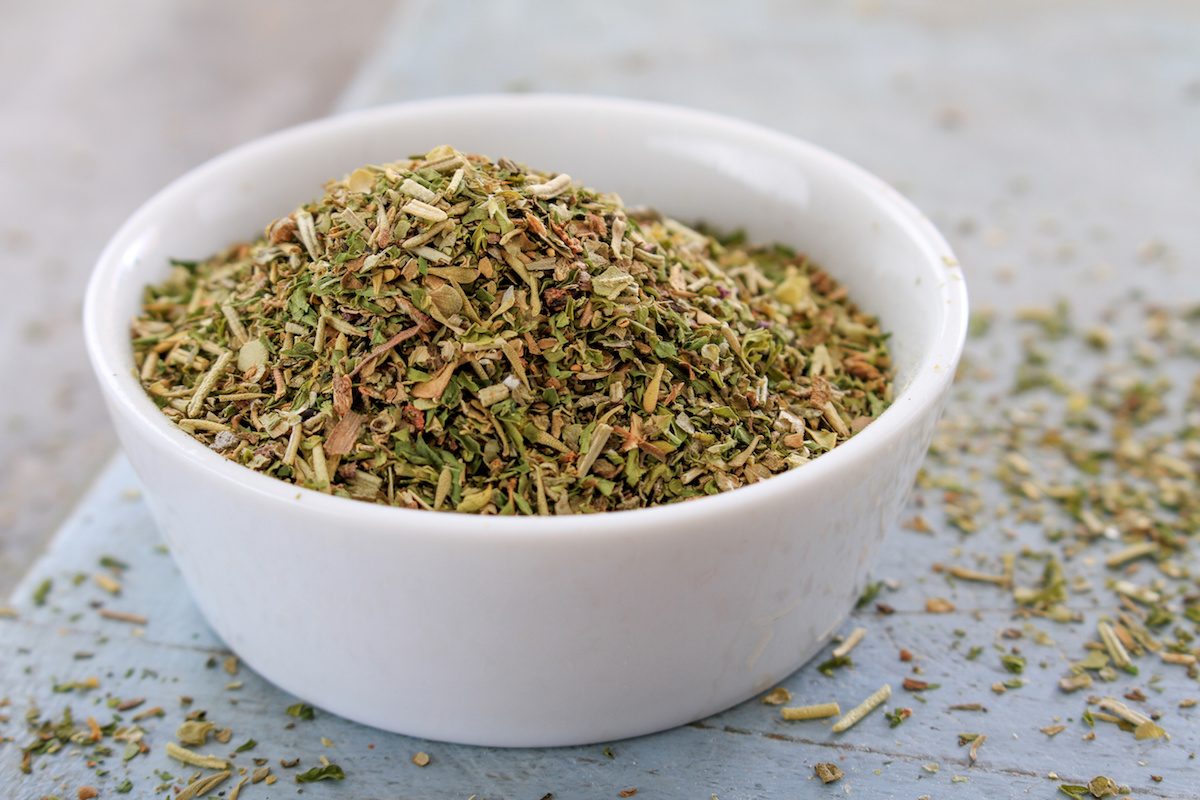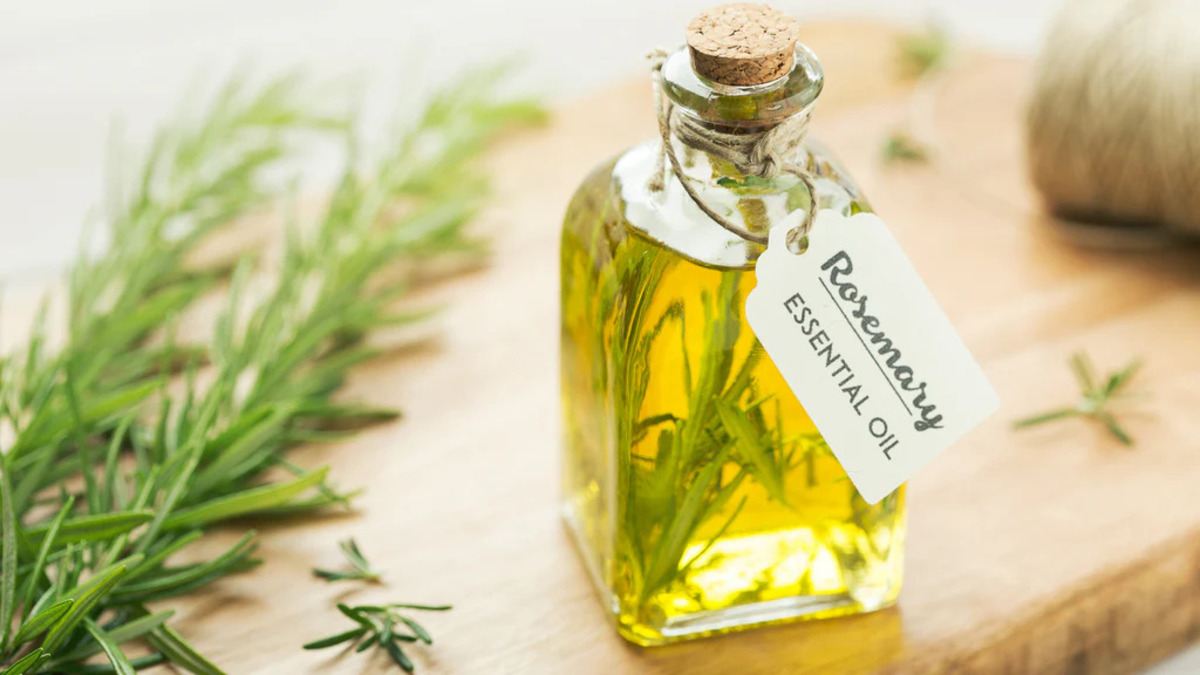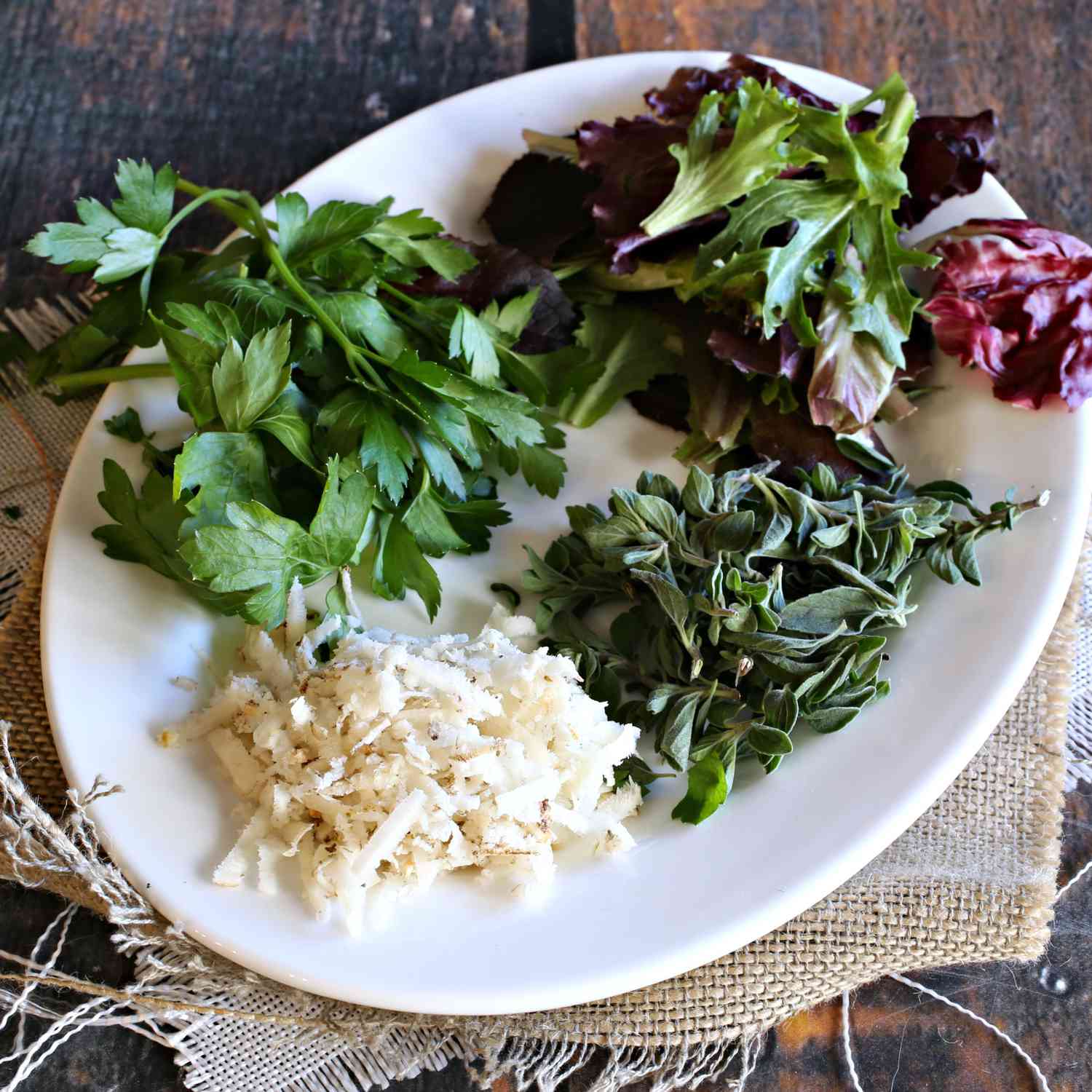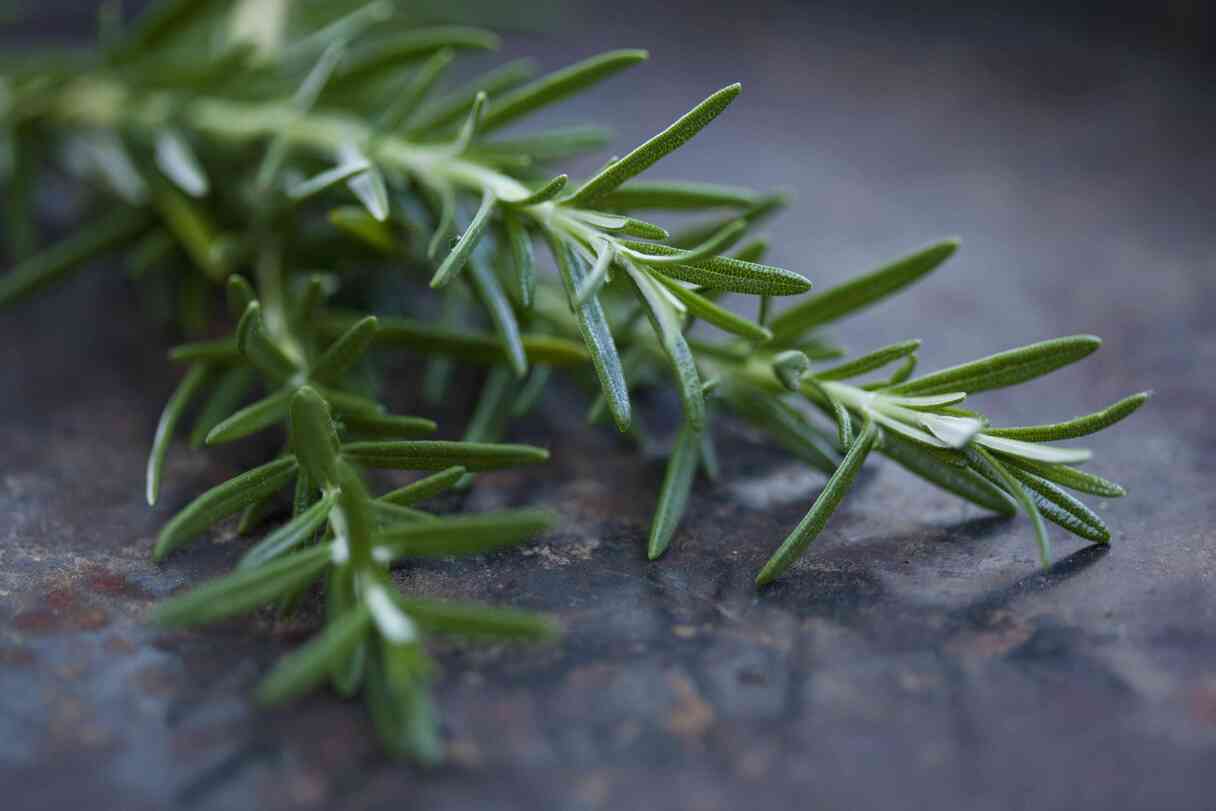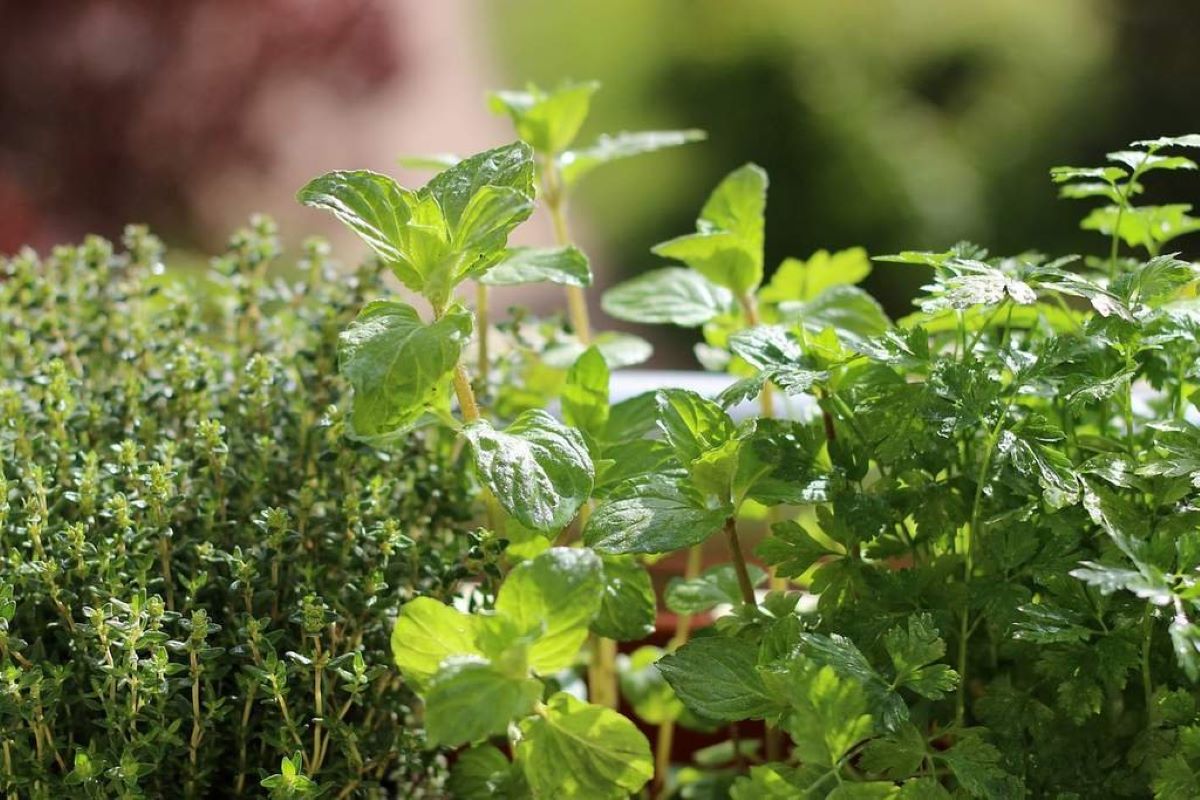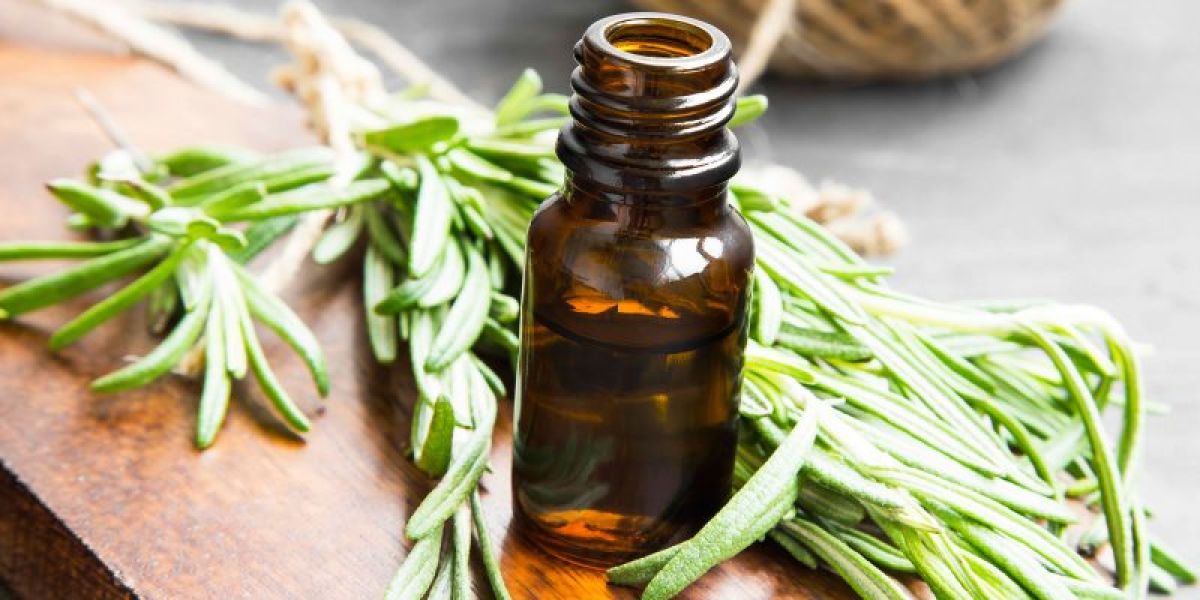Home>Types of Gardening>Edible Gardening>What Is The Herb Rosemary Used For
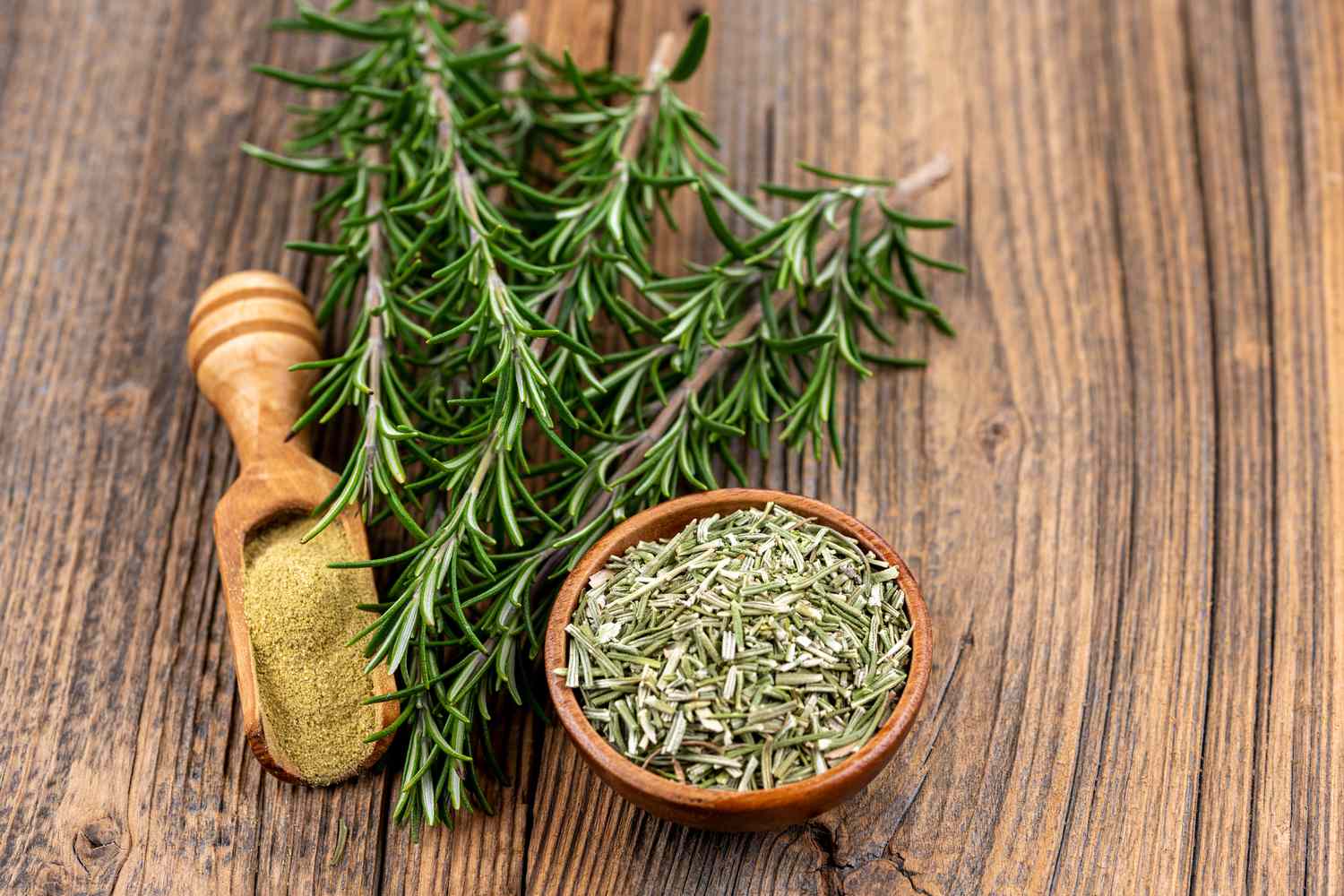

Edible Gardening
What Is The Herb Rosemary Used For
Published: January 30, 2024
Discover the many uses of the herb rosemary in edible gardening. From adding flavor to dishes to promoting digestive health, learn all about this versatile and aromatic herb.
(Many of the links in this article redirect to a specific reviewed product. Your purchase of these products through affiliate links helps to generate commission for Chicagolandgardening.com, at no extra cost. Learn more)
Table of Contents
Introduction
Welcome to the wonderful world of edible gardening! Growing your own food is not only a rewarding and fulfilling experience but also a sustainable and cost-effective way to meet your nutritional needs. One plant that deserves a special place in your edible garden is rosemary. This versatile herb has been valued for centuries for its aromatic fragrance and numerous uses.
Originating from the Mediterranean region, rosemary is a member of the mint family, known for its attractive needle-like leaves and delicate flowers. Its distinctive aroma has earned it the nickname “the herb of remembrance,” symbolizing its long-standing association in folklore and history with memory and mental clarity.
But rosemary is not just a pretty plant to adorn your garden. It is packed with flavor and nutritional benefits that can enhance your culinary creations. From its vibrant taste in savory dishes to its soothing properties in skincare products, rosemary is truly a versatile herb.
In this article, we will delve into the myriad of uses for rosemary, including its culinary applications, medicinal properties, traditional uses in herbal medicine, potential beauty and skincare benefits, and even its place in aromatherapy. Whether you are an experienced gardener or a complete novice, this guide aims to inspire you to incorporate rosemary into your garden and everyday life.
So, grab your gardening tools and prepare to discover the wonders of rosemary. Let’s explore how this herb can transform your edible garden and enrich your culinary and holistic experiences.
Brief History of Rosemary
Rosemary has a rich history that dates back thousands of years. It has been revered by various civilizations and cultures for its aromatic properties and believed health benefits. The name “rosemary” is derived from the Latin words “ros” meaning dew and “marinus” meaning sea, giving rise to its moniker “dew of the sea.”
Ancient civilizations such as the Egyptians, Greeks, and Romans held rosemary in high regard. The Egyptians used it in their sacred rituals and believed that it had protective powers. In Greece, rosemary was seen as a symbol of friendship, love, and fidelity and was commonly adorned in wedding ceremonies and festivals.
The Romans, renowned for their love for lavish feasts, incorporated rosemary into their culinary repertoire. It was not only enjoyed for its aroma but also believed to aid digestion. It was also used as a fragrant addition to their bathwater and as a natural disinfectant.
During the Middle Ages, rosemary was associated with both spiritual and medicinal properties. It was used in religious ceremonies and believed to bring protection against evil spirits and ward off diseases. Medieval gardens often featured rosemary plants, and it was believed that a healthy rosemary plant signified a prosperous household.
Over the centuries, rosemary traveled across continents and garnered global recognition. Its popularity spread to different parts of the world, including Asia and the Americas, where it was integrated into traditional cuisines and herbal medicine practices.
Today, rosemary continues to be cherished for its distinctive flavor and scent. It is widely cultivated and used in various cuisines, especially in Mediterranean dishes. Its versatility and resilience have made it a favorite among gardeners, with many growing it not just for culinary purposes, but also for its ornamental beauty and aromatic allure.
The rich and diverse history of rosemary is a testament to its enduring appeal. Whether appreciated for its culinary benefits, cultural significance, or therapeutic properties, the allure of rosemary transcends time and continues to captivate people all over the world.
Culinary Uses of Rosemary
Rosemary is a versatile herb with a bold and distinctive flavor that can elevate the taste of various dishes. Its aromatic and slightly pine-like essence adds a delightful depth to both savory and sweet recipes. From roasted meats to hearty stews and even baked goods, rosemary can enhance the overall taste profile of your culinary creations.
One of the most popular uses of rosemary in cooking is as a seasoning for roasted meats. Whether you’re preparing a succulent roast chicken, a tender rack of lamb, or a flavorful beef roast, adding rosemary sprigs to the dish imparts a delightful aroma and a burst of flavor. The earthy and slightly citrus notes of rosemary complement and enhance the natural flavors of the meats, creating a truly delicious and memorable dining experience.
Rosemary also pairs exceptionally well with potatoes. Whether you’re making roasted potatoes, mashed potatoes, or even potato wedges, adding chopped rosemary leaves infuses the dish with a fragrant and savory profile. The marriage of the herb’s pine-like taste with the creamy texture of potatoes creates a winning combination that is sure to please your taste buds.
Soups and stews are another realm where rosemary shines. It adds depth and richness to hearty dishes like chicken noodle soup, beef stew, or vegetable soup. The herb’s robust flavor infuses the broth, creating a warm and comforting experience with every spoonful.
But it’s not just savory dishes where rosemary can work its magic. It can also lend a unique twist to sweet treats. Infusing honey or sugar with rosemary leaves creates a subtly sweet and herbal element that can elevate desserts like cakes, cookies, or even homemade ice cream.
Don’t limit yourself to just using fresh rosemary in your recipes. Dried rosemary can also be a fantastic addition to your culinary endeavors, especially if fresh rosemary is not readily available. Its concentrated flavor can be a convenient alternative for seasoning marinades, rubs, or spice blends.
By cultivating rosemary in your garden and incorporating it into your cooking, you can unleash the true potential of this remarkable herb. Its versatility and unique flavor profile make it a staple ingredient in many kitchens, whether you’re a professional chef or a home cook looking to add a touch of culinary flair to your dishes.
Medicinal Uses of Rosemary
Beyond its culinary applications, rosemary has long been revered for its medicinal properties and potential health benefits. This herb contains several bioactive compounds, including rosmarinic acid, caffeic acid, and carnosic acid, which contribute to its therapeutic effects.
One of the notable benefits of rosemary is its potential to improve digestion. It has been traditionally used to address digestive issues such as indigestion, bloating, and gas. Rosemary can stimulate the production of bile, a substance that aids in the digestion of fats, thereby promoting a healthier digestive system.
Rosemary also exhibits antioxidant properties, which can help protect against oxidative stress and cellular damage. The antioxidants present in rosemary can neutralize harmful free radicals, reducing the risk of chronic diseases and supporting overall health.
Furthermore, rosemary has anti-inflammatory properties, which may help alleviate inflammation-related conditions. The rosmarinic acid in rosemary has been studied for its potential to reduce inflammation in the body, potentially providing relief for conditions such as arthritis, asthma, and inflammatory bowel disease.
In addition to its anti-inflammatory effects, rosemary has shown promise in enhancing memory and cognitive function. Aromatherapy using rosemary essential oil has been linked to improved concentration, focus, and mental clarity. Some studies suggest that rosemary may have neuroprotective properties and can potentially delay cognitive decline associated with aging or neurodegenerative diseases.
Rosemary has also been used topically for its antimicrobial properties. It may help fight against certain bacteria and fungi when applied to the skin. The volatile compounds found in rosemary essential oil, such as cineole and camphor, contribute to its antimicrobial effects, making it a popular choice in natural skincare products.
While rosemary offers potential health benefits, it is important to note that it is not a substitute for professional medical advice. If you have any specific health concerns or conditions, it is recommended to consult with a healthcare professional before using rosemary or any other herbal remedy.
Overall, the medicinal properties of rosemary make it a fascinating herb that goes beyond its delectable taste. From aiding digestion and reducing inflammation to potentially improving cognitive function, rosemary’s multifaceted benefits make it a remarkable addition to your holistic wellness toolkit.
Rosemary in Traditional Medicine
Rosemary has a long history of use in traditional medicine across various cultures. Its medicinal properties and potential health benefits have been recognized and valued for centuries. Let’s take a closer look at how rosemary has been used in traditional medicine practices.
In ancient times, rosemary was believed to have a plethora of healing properties. It was used to address ailments such as indigestion, headaches, fatigue, and even to alleviate symptoms of respiratory conditions like colds and coughs. The herb was often brewed into teas, infused into oils, or used in poultices for topical applications.
One of the key traditional uses of rosemary was as a natural remedy for improving memory and cognitive function. Ancient scholars would place rosemary sprigs in their hair or create garlands to wear while studying or speaking in public, believing that the herb’s scent could enhance concentration and memory retention.
Rosemary also gained prominence in traditional medicine for its potential to stimulate circulation. It was used as a rub or part of massage oils to relieve muscle aches and pains. The herb’s warming properties were believed to increase blood flow to the affected areas, aiding in the relief of soreness and promoting healing.
Furthermore, rosemary was considered an effective herbal remedy for promoting hair health. It was believed to stimulate hair growth, help combat dandruff, and improve overall scalp health. The herb was infused into hair rinses or added to natural hair care formulations to nourish the hair follicles and promote stronger, healthier strands.
In traditional medicine practices, rosemary was also regarded as a potent antiseptic and antibacterial agent. It was used to cleanse wounds, prevent infections, and promote faster wound healing. The aromatic compounds found in rosemary essential oil are thought to possess antimicrobial properties, making it a popular ingredient in natural salves and poultices.
It is important to note that while rosemary has a long history of use in traditional medicine, scientific research is still ongoing to fully understand its efficacy and safety. As with any herbal remedy, it is recommended to consult with a healthcare professional before using rosemary for medicinal purposes, especially if you have any underlying health conditions or are taking medications.
Rosemary’s rich history in traditional medicine showcases the plant’s versatility and the profound impact it has had on various aspects of well-being. From boosting cognitive function to promoting hair health and supporting wound healing, rosemary’s traditional use in herbal remedies highlights its enduring significance in holistic approaches to health and wellness.
Beauty and Skincare Applications of Rosemary
Rosemary is not just a culinary herb; it also offers numerous benefits when incorporated into beauty and skincare routines. Its natural compounds and aromatic properties make it a popular choice in natural beauty products. Let’s explore some of the ways rosemary can enhance your beauty and skincare regimen.
One of the notable benefits of rosemary for the skin is its potential to balance oil production. If you struggle with oily skin or acne-prone skin, rosemary-infused products can help regulate sebum production, reducing excess oiliness and preventing clogged pores. Its antibacterial properties can also aid in fighting acne-causing bacteria, promoting clearer and healthier skin.
Rosemary is also known for its astringent properties, which can help tighten and tone the skin. When used as a facial toner or incorporated into skincare products, rosemary can minimize the appearance of pores and provide a revitalizing effect, leaving your skin looking smoother and more refined.
In addition to its potential benefits for oily and acne-prone skin, rosemary can also be beneficial for dry and dehydrated skin types. It has moisturizing properties that help soothe and hydrate the skin, preventing dryness and promoting a healthy-looking complexion. Including rosemary-infused oils or creams in your skincare routine can provide a nourishing boost to your skin’s moisture levels.
Rosemary is also valued for its antioxidant content, which can help protect the skin from free radicals and environmental stressors that contribute to premature aging. Its antioxidant properties support the skin’s natural collagen production, helping to maintain its elasticity and reduce the appearance of fine lines and wrinkles.
Furthermore, rosemary can be used in hair care to support scalp health and promote stronger, shinier hair. It can help address common scalp issues such as dandruff and itchiness. Rosemary-infused hair products, like shampoos and conditioners, can provide a refreshing and invigorating experience, while also nourishing the hair follicles and improving overall hair health.
Whether you’re looking to address specific skincare concerns or simply enhance your daily beauty regimen, incorporating rosemary into your routine can provide numerous benefits. From its oil-balancing and astringent properties to its moisturizing and antioxidant effects, rosemary can help you achieve a healthier and more radiant complexion.
As with any skincare product, it’s important to patch test first and consult with a dermatologist if you have any specific skin concerns or sensitivities. Embrace the power of rosemary and unlock its potential for natural beauty and glowing skin.
Rosemary in Aromatherapy
Rosemary is not only cherished for its culinary and medicinal uses but also plays a significant role in the world of aromatherapy. Its distinctive scent and therapeutic properties make it a popular choice for enhancing well-being and promoting relaxation. Let’s explore how rosemary can be incorporated into aromatherapy practices.
The essential oil of rosemary, extracted from its leaves through steam distillation, is widely utilized in aromatherapy. Its invigorating and uplifting aroma is known to stimulate the senses, increase mental clarity, and improve focus. Inhaled through diffusers, direct inhalation, or added to bath products, rosemary essential oil can provide a refreshing and revitalizing experience.
One of the key benefits of rosemary in aromatherapy is its potential to improve cognitive function and memory retention. Inhaling its scent is believed to enhance concentration, boost mental alertness, and stimulate memory recall. This makes rosemary an ideal oil to diffuse in study or work spaces, helping to create a focused and productive environment.
In addition to its cognitive benefits, rosemary essential oil is also known for its mood-enhancing properties. It can provide a sense of upliftment and positivity, helping to alleviate stress, anxiety, and fatigue. Aromatherapy massages with rosemary oil can promote relaxation and emotional balance, providing a soothing experience for the mind and body.
Furthermore, rosemary is reputed for its ability to ease respiratory congestion and promote clearer breathing. Inhaling its scent can help open up the airways and relieve symptoms of respiratory conditions such as sinus congestion, allergies, and colds. Adding a few drops of rosemary essential oil to a steam inhalation or using it in a diffuser can provide respiratory support and promote a sense of relief.
It is important to note that when using essential oils, including rosemary, in aromatherapy, proper safety precautions should be followed. Essential oils are highly concentrated and should be diluted before topical use, and some oils may cause sensitivities or allergic reactions. It’s recommended to consult with a certified aromatherapist or healthcare professional for personalized advice and guidance.
With its invigorating aroma and therapeutic benefits, rosemary brings a fresh and energizing component to the practice of aromatherapy. Whether diffused in your living or workspaces, added to massage oils, or incorporated into bath products, rosemary can help uplift the spirit, sharpen the mind, and provide a sense of tranquility amidst the demands of daily life.
Other Uses of Rosemary
Aside from its culinary, medicinal, and aromatherapy applications, rosemary has a range of other uses that highlight its versatility and practicality. Let’s explore some of the additional ways in which rosemary can be utilized.
One of the lesser-known uses of rosemary is as a natural insect repellent. The strong scent of rosemary can help keep pesky bugs at bay, making it a great companion in outdoor gatherings or when spending time in areas prone to insects. Simply place rosemary sprigs in strategic locations or create a DIY repellent spray using rosemary essential oil diluted in water.
Rosemary can also be incorporated into homemade cleaning solutions. Its antimicrobial properties and refreshing scent make it an excellent addition to natural cleaning products. Infused rosemary vinegar can be used as a multipurpose cleaner for surfaces, while rosemary essential oil can be added to laundry detergent for a fresh and fragrant boost.
Gardening enthusiasts can take advantage of rosemary’s natural repellent properties by planting it in their garden to deter pests. The strong aroma is known to drive away certain insects, making it a useful ally for protecting other plants from potential damage. Additionally, rosemary plants can act as ornamental features, adding beauty and fragrance to any garden landscape.
Another interesting use for rosemary is in homemade crafts. The herb’s sturdy yet flexible stems can be used for making wreaths, garlands, and decorative arrangements. The aromatic foliage adds a pleasing fragrance and a touch of natural beauty to any craft project.
In some cultures, rosemary is believed to bring good luck and ward off negative energy. It is used in rituals and customs to promote positive vibes and protection. Placing sprigs of rosemary around the home or incorporating it into smudging rituals are some ways to embrace its symbolic and spiritual significance.
It’s important to remember that while rosemary has many potential uses, individual experiences may vary, and it’s always a good idea to exercise caution and seek advice when experimenting with new applications.
From repelling insects and enhancing cleaning routines to serving as a gardening companion and playing a role in traditional customs, rosemary demonstrates its versatility and usefulness beyond its well-known culinary and medicinal attributes. Embrace the myriad uses of rosemary to enhance different aspects of your life and embrace its practicality in various domains.
Conclusion
Rosemary truly proves its worth as a versatile herb with a wide range of applications. From its culinary uses, where it adds depth and flavor to various dishes, to its medicinal properties that offer potential health benefits, rosemary has earned its place in the spotlight. Additionally, rosemary’s role in traditional medicine, beauty and skincare, aromatherapy, and even in alternative uses like insect repellent and crafting, showcases its incredible versatility and practicality.
Throughout history, rosemary has remained a beloved herb, cherished by countless cultures and civilizations for its fragrance, flavor, and potential healing properties. Its rich and diverse history contributes to its enduring appeal and serves as a testament to its remarkable qualities.
Whether you’re an experienced gardener or a novice starting your edible garden, incorporating rosemary adds beauty, aroma, and practicality to your outdoor space. The aromatic scent of rosemary can uplift your spirits, promote relaxation, and even stimulate your memory. Its culinary applications can transform a simple dish into a flavor-packed culinary masterpiece, while its potential health benefits offer holistic wellness support.
As with any herb, it’s important to approach the usage of rosemary with proper care and consultation, especially if you have any existing health conditions or are pregnant or breastfeeding. It’s also wise to consult with a professional for personalized advice and guidance.
Whether you’re growing rosemary in your garden, incorporating it into your cooking, utilizing it in skincare or aromatherapy, or exploring its alternative uses, rosemary has a place in every aspect of your life. Embrace the wonders of rosemary and allow this remarkable herb to enhance your edible gardening journey, tantalize your taste buds, and promote your overall well-being and enjoyment.
So, let’s embrace the remarkable qualities of rosemary, unlock its potential, and savor the incredible benefits it brings to our edible gardens, kitchens, beauty routines, and holistic practices.
